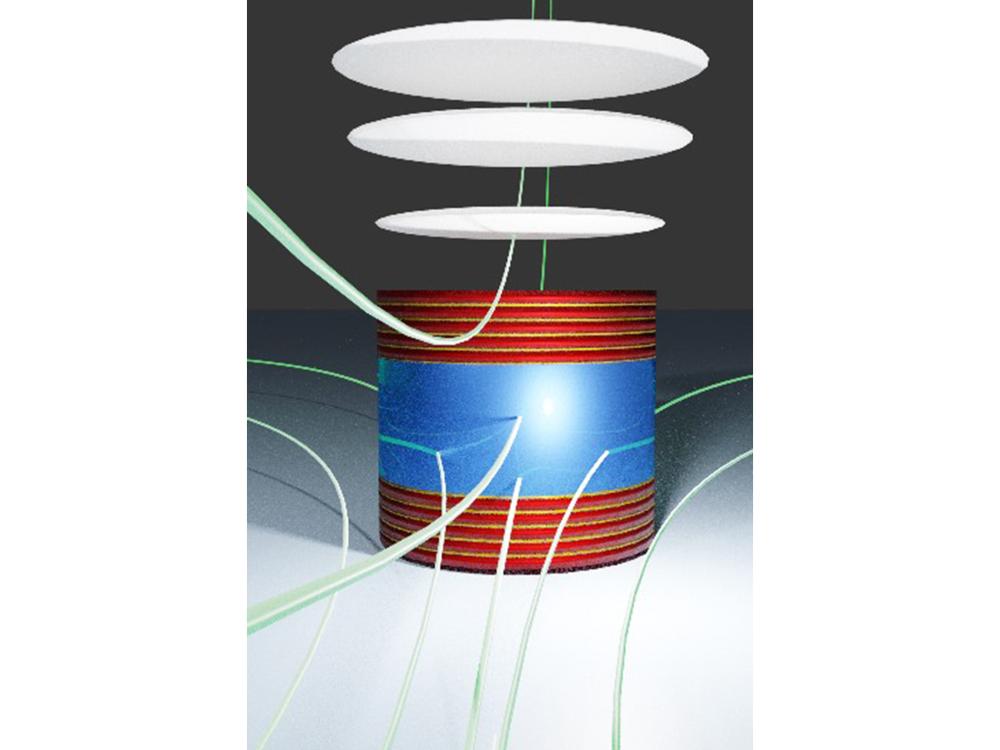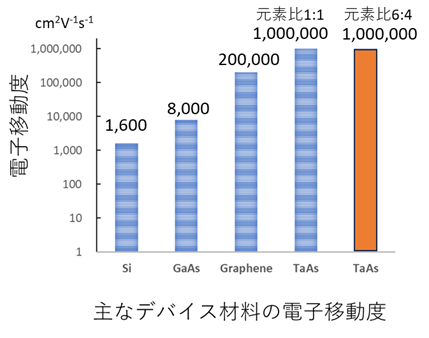2024-02-20 ペンシルベニア州立大学(PennState)

A 3D illustration of a new device that can harvest energy from magnetic field and ultrasound sources simultaneously, converting this energy to electricity that could power the next generation of implantable biomedical devices. Credit: Provided by Bed Poudel . All Rights Reserved.
◆このデバイスは、磁場と超音波の両方からエネルギーを収穫し、それを電気に変換してインプラントを駆動することができます。これにより、小型化されたバッテリー不要の生体電子デバイスが可能になり、体内の生理活動を測定および制御するための分散型のセンサーとアクチュエーターのネットワークを可能にします。
<関連情報>
- https://www.psu.edu/news/research/story/dual-energy-harvesting-device-could-power-future-wireless-medical-implants/
- https://pubs.rsc.org/en/content/articlelanding/2024/ee/d3ee03889k
磁場と超音波による同時無線エネルギーハーベスティング Magnetic field and ultrasound induced simultaneous wireless energy harvesting
Sumanta Kumar Kumar Karan, Sujay Hosur, Zeinab Kashani, Haoyang Leng, Anitha Vijay, Rammohan Sriramdas, Kai Wang, Bed Poudel, Andrew Patterson, Mehdi Kiani and Shashank Priya
Energy & Environmental Science Published:24 Jan 2024
DOI:https://doi.org/10.1039/D3EE03889K
Abstract
Energy harvesting can provide continuous power required for operating biomedical, physical, and chemical devices. However, providing sufficient power for many applications utilizing only a single modality through energy harvesting is still challenging due to their restricted power density considering the source energy that is below human body safety limits. Here, for the first time a high-power density energy harvester using piezoelectric and magnetoelectric conversion is demonstrated operating within the human body safety limit. This dual harvester can harvest energy from different directions which makes it insensitive to the source orientation. Prototype design is demonstrated to harvest magnetic and ultrasound energy simultaneously from a single device traveling through liquid/tissue media generating ultra-high power of ~52.1 mW (power density of ~597 mW/cm3) across input of ~500 μT rms magnetic field and ~675 mW/cm2 ultrasound intensity that is below the safety limits prescribed by the IEEE and FDA. This represents ~225% improvement compared to individual magnetoelectric system utilizing single source under safety limit. The device can recharge a 3V lithium-ion battery with 1 mAh capacity at a rate of ~1.67 mC/s in porcine tissue. These findings suggest that the dual energy harvester based on magnetic field and ultrasound has the potential to power various electronic applications, such as implantable devices and embedded components.



